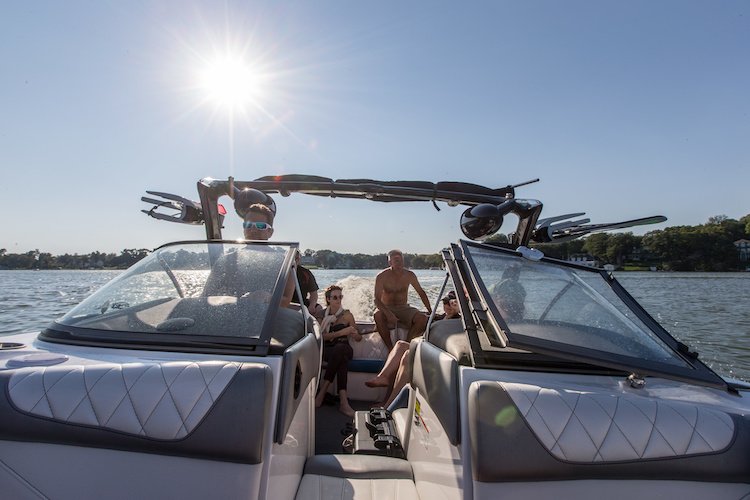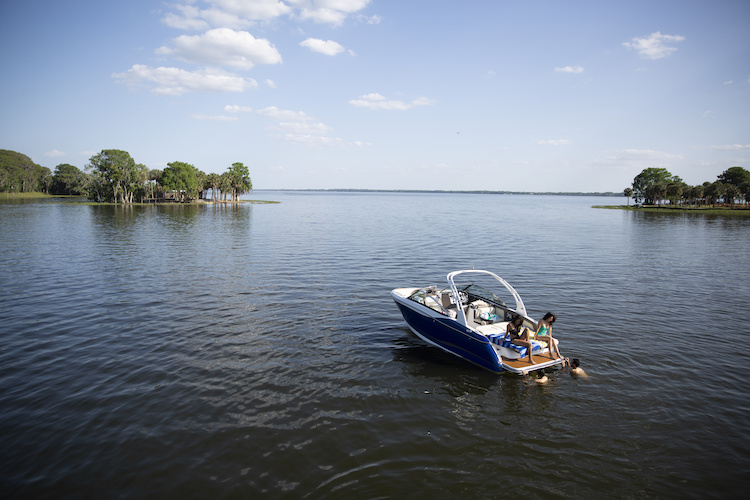How to Sell Your Boat Fast -- or, for More
Selling your boat is a big decision. Unfortunately, selling a boat can sometimes be a long process—but there are some tricks to follow to sell your boat fast, and also, how you can sell it for more.
Here are the basic steps to follow when selling your boat:
- Determine if you will sell the boat yourself (FSBO) or work with a broker or dealer.
- Make sure the boat looks and runs as well as possible.
- Research the listing price of similar boats, considering make, model, size, and age.
- Decide on an asking price that is the market price for you boat, given its, year, condition and equipment.
- If a FSBO, and a relatively small boat, advertise your boat for sale in local media.
- If it is a large boat, you would be well advised to advertise to a national market, which usually means you should have a broker.
How to Work with Boat Brokers and Dealers
If you want to sell your boat but don’t want to invest all the necessary time and effort required, you can hire a professional boat broker or dealer. Or, you could trade in your boat if you buy a new one from a dealer who accepts trades. In such a case, remember that the dealer/broker will determine what the market value is, then discount that number for his trade-in allowance so he can make a profit on the sale. Remember, the dealer/broker is taking the risk.
In most cases, particularly with larger boats, we recommend using a broker or dealer. They are professionals at selling boats and have the built-in infrastructure to accomplish what you want done. Best of all, their fee is on contingency -- if the boat doesn't sell they don't make a commission.
The commission (usually 10%) is paid by the buyer only when the boat is sold. Since the dealer or broker wants to maximize the commission, typically the boat's price will be set at a number that is mutually agreeable, and generally that means at the high end of "realistic."
The brokers and dealers handle all of the advertising, provide sales staff to interact with shoppers, and have the back office to handle the paperwork once a sale is made. So, you can see that the broker is certainly earning the 10% commission from the transaction. Typically, if one broker represents the seller, and another broker represents the buyer, the commission is split 50/50 -- 5% of the selling price for each.
For sellers who are involved in their own business, or otherwise have limited time and sales expertise, a broker or dealer offers the most efficient -- and trouble-free -- way to sell a boat.

How to Prepare a Boat for Sale
The amount of prep work you do to your boat will dramatically impact how much someone’s willing to pay for it. That means you’ll need to thoroughly clean the boat inside and out, wash it, and wax every inch of it. This includes cleaning areas out of sight, like stowage compartments under seats or the inside of a fish box.
If someone looks inside as they inspect the boat, you want them to see a neat, clean interior. Also, remove any extra gear that amounts to clutter. This will help the boat’s deck, cabin, and/or stowage compartments seem larger at first glance. If the boat has inboard engines, make sure that the engine room, bilge and all areas are clean. Depending on the size of the boat, it may be worth the money to have the bilge painted.
Naturally, a potential buyer will also be interested in a properly functioning boat. Fix or replace any broken or malfunctioning equipment—especially power plants (engine) which should be inspected by the brand's local distributor — before attempting to sell the boat, or you can’t expect to get top dollar.
How to Price Your Boat
Once it’s cleaned and prepped, you need to nail down a reasonable asking price for your boat. You can start by checking the price guides. However, remember that the values they publish are estimates, at best. Market value will vary around the country for smaller boats, so you need to find out what boats like yours are selling for in your general area.
Check BoatTEST's J.D. Power Price Guide.
The boat’s condition will significantly impact its value, which guides can’t take into account. Therefore, you should look at listings for similar boats online, in magazines, and on boat broker and on local dealer websites, as well.
Don't expect to get what you paid for the boat, including any aftermarket equipment you added -- even for a late model boat. Dealer commission and depreciation will make the market value less in most cases. However, there are exceptions. Those generally involve large vessels with a long lead time for new boats being built, and a buyer who is in a hurry.
The type of boating you’ve done also plays a role since boats used in freshwater tend to bring higher prices than those used in saltwater. Also, boats sold in the north generally sell for more than boats in the south, and boats in the Pacific Northwest for more than boats in the rest of the North. Seasonality can affect boat pricing because many people are more apt to buy a boat in the spring than in the late fall or winter.
After you settle on a figure, remember that a boat’s only worth what someone is willing to pay for it. It may sit on the market for months if it is too high. Since it can be hard to determine a value, some boat sellers list at a starting point and gauge the interest level for a month or so. Then they drop the asking price a few percent each week or month after that until a significant number of buyers begin to show interest.

How to Advertise a Boat for Sale
With the boat fully prepped and an asking price in mind, it’s time to generate some leads.
In this day and age, most people advertise their boats on several different websites that offer classifieds. Some are free, some aren’t, and all provide unpredictable results.
You may also want to advertise in a local paper or boating magazine. And don’t neglect the tried and true tactic of simply hanging a “For Sale” sign on the boat and placing it in a high-visibility area near a busy road or marina.
How to Show a Boat to Potential Buyers
If you choose to take the FSBO route, prepare to kiss a lot of frogs before you find a prince. We recommend that you take serious prospects for a sea trial in the boat, which should seal the deal if the boat is found to be as advertised.
It would help if you also were prepared to show them documents confirming legal ownership and the boat’s maintenance records. The most important thing during this stage is to remember that honesty is the best policy.
If you and a buyer reach an agreement, you should be prepared with all the legal paperwork to complete the transaction. This will vary by state (though, at the very least, it will involve signing over a title), and you should do the legwork ahead of time.
A buyer could change their mind after a handshake, but not after signatures and a financial transaction—so as the seller, it’s up to you to make the process as smooth and speedy as possible.
Once the sale has been made, your beloved old boat is off to its new home! Now you can turn your full attention to the more pressing issue—enjoying the brand-new boat you just bought!
Summary
- How to sell your boat fast: Use a good broker, price the boat below the market, and advertise it.
- How to sell your boat for more: Have it looking like new, have the brand's engine distributor inspection papers certifying the engine's condition, if possible position your boat as something unavailable anywhere else at the time, have a good broker representing the boat, put it on the market in the early Spring, look for buyers in the North, be willing to knock off a small percent for the buyer who wants to negotiate and feel good about getting a "discount."